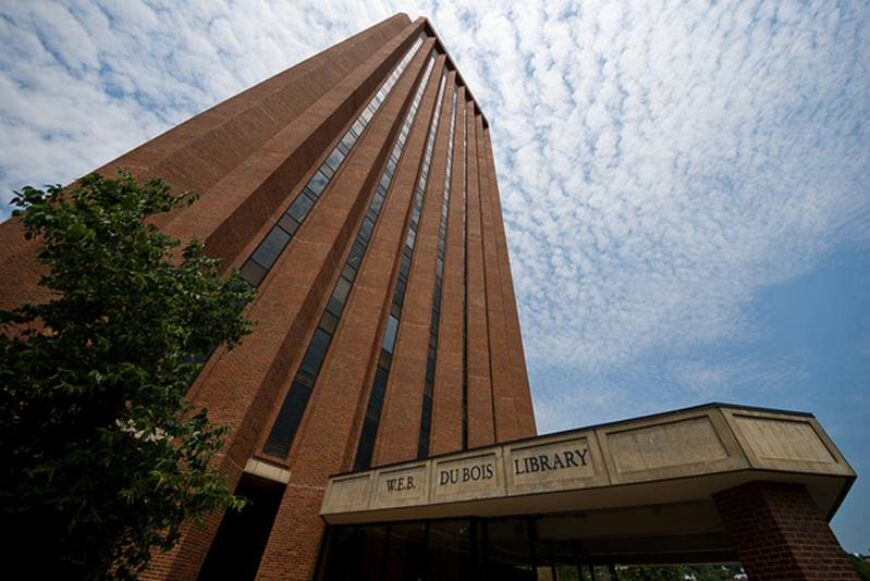
A Message from the Libraries in Response to Recent Acts of Hate Against Our Black Colleagues
As we reflect on the racist messaging received by our Black colleagues earlier this week, the Libraries would like to add our voice in response to this reprehensible act of cowardice and hate.
In a letter he wrote in 1909, W. E. B. Du Bois said, “You and I can never be satisfied with sitting down before a great human problem and saying nothing can be done. We must do something. That is the reason we are on Earth.” Du Bois’s intellectual legacy provides us with the moral and philosophical frameworks we need to confront the issues of our own time. Du Bois knew that the work of ending racism, colonialism, and socio-economic inequality would not be completed in his lifetime. His written works, and his tremendous archive, testify to this belief.
As the custodians of Du Bois’s papers, we are guided by the principles embodied by Du Bois’s life and legacy. Committed to the values enshrined in his writings, we acknowledge that simply naming a building for the great man is not sufficient. We recognize that despite a life replete with achievements, accolades, and triumphs, Du Bois’s road was hard. He faced unimaginable personal losses, prejudice at the hands of those he depended on for knowledge and work, and, at the close of his life, an attempted character assassination at the hands of the US government. Throughout his career, Du Bois illuminated the suffering to which he and Black people across America and the world were subjected. In this way he foreshadowed the principles of the Movement for Black Lives, and showed that behind the faceless edifice of systemic racism lay real human experiences.
In the words of Martin Luther King, “Dr. Du Bois has left us, but he has not died.’” We can and ought to keep thinking with Du Bois and using his words to inform, guide, and inspire our anti-racist work on campus and in our daily lives. Du Bois’s vast body of work, and the example of his life of leadership, empathy, and civic engagement, give us all the resources we need and more to understand the history that has led us to this point, and the ways we can move forward toward a more equitable, peaceful, and democratic future.
In keeping with Du Bois’ legacy, we are encouraging you all to think, research, and read—to come into the Libraries and make use of Du Bois’ works and those of other thought leaders, represented in our collections of African American History and Culture in the Robert S. Cox Special Collections and University Archives Research Center, join the Du Bois Center mailing list to receive a weekly invitation to the ‘Breakfast with Du Bois’ reading group and to be kept informed about other events and programs at the Du Bois Center.

The tower library with Du Bois’ namesake serves as a campus landmark and visible beacon of a safe space for intellectual discourse by members of our university community. We see it as a physical reminder of the towering presence of Du Bois himself, and an embodiment of his enduring fight against racism. Standing in solidarity with our Black students, faculty, and staff, we look to his work now to continue the fight.As we move into finals, we want you to remember that one of the ways we hold safe space for our community is through our Finals Fun programming. As a part of our Outreach Series, all Library locations are providing spaces and activities for decompression and affirmation during a time which is already turbulent for our student community, where peer support and safety can be shared.
Sarah Hutton
Interim Dean of Libraries
May 6, 2022